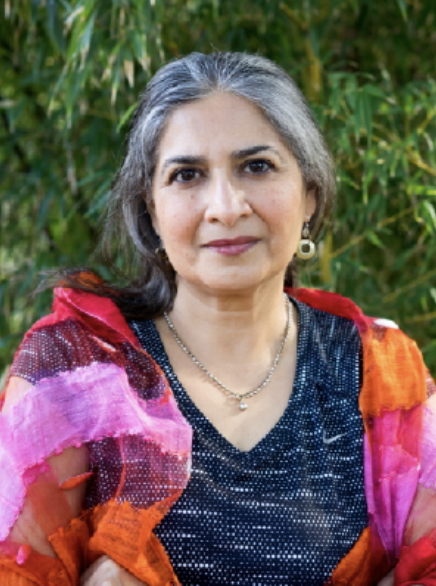Presented by Kalpana Asok, LMFT
1.5 CE credits
This event will be recorded and available to registrants for 3 months.
The topic of in-laws is a loaded one almost anywhere in the world. In the South Asian community it is a much more charged relationship, with the mothers-in-law being imbued with power that is almost mystifying. Mothers-in-law and their relationship with their daughters-in-law can make or break a family's health, with the daughters-in-law shouldering an unfair part of the burden.
Let us unpack the nuances of the relationship, its origin, the present-day difficulties, and the health of the family unit by understanding how this very important dynamic underlies many conflicted family beginnings in the culture. We will also look at ways to help a couple navigate speaking about a very explosive cultural turning point. Sexism, gendered expectations, re-plays of trauma, internalized sexism, power-plays, middle-aged coming of age, and broken dreams! Seriously though, this is a huge problem in many families and is a must-know topic in working with the culture.
Program Goal
The goal of this presentation is to learn about mothers-in-law in South Asian families, why this is important in the culture, how it impacts the couple's emotional health, how power dynamics work in the family, and how to help a couple speak about a difficult topic.
Learning Objectives
At the end of this presentation, participants will be able to:
1. Identify who holds the power in the new relationship between the daughter-in-law and her mother-in-law
2. Name 2 ways in which South Asian in-law relationships differ from Western in-law relationships
3. Identify 2 strong Hindu religious myths that feed the identities of South Asian male-and-mother separation and individuation cultural reality.
4. Recall 3 ways in which the collectivist family harmony story is supported by close ties between the mother-in-law and her daughter-in-law.
5. Name 4 common ways in which problems between mother-in-law and daughter-in-law play out.
6. Recall 4 ways of more effective communication with this population based on understanding cultural differences, symbolism, and unconscious expectations.
About the Presenter
 As an independent practitioner therapist with over 30 years of experience in the south bay area, Kalpana Asok, MS, MA, LMFT, primarily serves clients of the South Asian immigrant community which is especially large in the Bay area. She works with adults— individually and as couples. People seek her out for her skill and expertise in working with this population. She integrates a great amount of social and cultural awareness of the client's family and immigration circumstances together with clinical experience. Her book on the cultural nuances of the South Asian community has been well received both by therapists in the wider population and by young adults in the South Asian community. An area of special interest is working with gifted high-achieving adults. She is also a published poet channeling some of her reflections of identity and experiences as a South Asian immigrant, a parent, and Silicon Valley resident into poetry. She can be reached through her website at www.calmtherapy.com.
As an independent practitioner therapist with over 30 years of experience in the south bay area, Kalpana Asok, MS, MA, LMFT, primarily serves clients of the South Asian immigrant community which is especially large in the Bay area. She works with adults— individually and as couples. People seek her out for her skill and expertise in working with this population. She integrates a great amount of social and cultural awareness of the client's family and immigration circumstances together with clinical experience. Her book on the cultural nuances of the South Asian community has been well received both by therapists in the wider population and by young adults in the South Asian community. An area of special interest is working with gifted high-achieving adults. She is also a published poet channeling some of her reflections of identity and experiences as a South Asian immigrant, a parent, and Silicon Valley resident into poetry. She can be reached through her website at www.calmtherapy.com.
Outline with timeline
11:00 Introduction
11:10 Nuances of the topic
11:20 History and culture
11:30 Present day conflict and values
11:45 Case discussion
12:10 Review
12:20 Q & A
This is an intermediate level course.
TARGET AUDIENCE: LCSWs, LMFTs, LPCCs, LEPs
If you miss any of the presentation, you will not be eligible for the CEUs. This course meets the qualifications of 1.5 continuing education credit for LMFTs, LPCCs, LEPs and/or LCSWs as required by the California Board of Behavioral Sciences. SCV-CAMFT is a CAMFT-approved Continuing Education Provider (CEPA 052466).
The views expressed in this presentation are those of the speaker and not, necessarily, of SCV-CAMFT. SCV-CAMFT can not be held liable for any damages arising from recommendations or advice given by our speakers or any actions or decisions arising out of the content of this presentation. Presentations at SCV-CAMFT events do not constitute an endorsement of the vendor or speaker's views, products or services.
Event Policy Information
